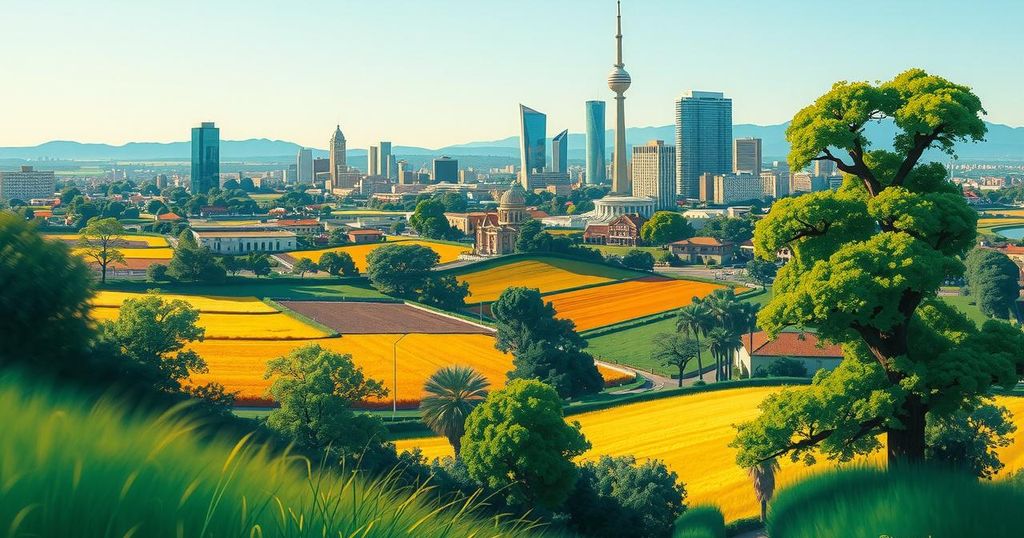José Mujica: A Complex Legacy of Charisma and Contradiction

José Mujica, Uruguay’s former president, passed away on May 13. He was a complex figure who blended urban, socialist values with rural conservatism. Although beloved by many for his authentic style, his legacy is polarizing, marked by social reforms and economic failures. Mujica remains a symbol of unique political charisma amidst contrasting ideologies in Uruguay.
José Mujica, the former president of Uruguay known for his unique charm and complex personality, passed away on May 13. Explaining Mujica to an audience outside of Uruguay can be quite a challenge, as he embodied characteristics that are quintessentially Uruguayan. His persona reflects the duality of the nation itself: one part urban and socialist with European roots, while the other is deeply rural and conservative. This division continues to shape Uruguay’s political landscape even today.
Mujica was a fascinating blend of those two often clashing worlds. Historically, Uruguay has experienced significant political turmoil, including a brutal civil war in the 19th century. However, the country later prospered, emerging as one of the most equal and democratic societies in South America. But the tides turned again with Mujica’s rise as he became disillusioned with democracy, leading a guerrilla movement that plunged the nation into a military dictatorship.
After serving a decade in prison, Mujica became a symbol of redemption in the political sphere. His leadership of the Tupamaros, a guerrilla group, transformed it into a legitimate political force. His ascendency to the presidency in 2010 was marked by an exceptional grassroots campaign, characterized by his direct, no-frills communication style. He trekked across the country, winning the hearts of ordinary Uruguayan citizens along the way, regardless of their urban or rural affiliations.
His image as “the world’s poorest president” gained traction partly due to anecdotes about his modest lifestyle. Reports suggested he rode a beaten Vespa to Congress and made light-hearted comments about his political stay, like, “the whole five years, unless something terrible happens.” His humble abode on a small farm near Montevideo became a notable contrast to his meetings with world leaders, like the King of Spain and presidents of Brazil, who he often met while seated on makeshift chairs.
Despite his endearing characteristics, Mujica’s political legacy is highly controversial and polarizing within Uruguay. While some praise him, others vehemently oppose him. Most agree, however, that his time in power coincided with a significant economic boom; still, he left the country deeply in debt. His government’s failure to fulfill key reforms in education and to rectify challenges faced by state-owned energy companies have drawn criticism.
On the other hand, his administration saw the legalization of abortion and same-sex marriage and a unique regulation of marijuana which allows government monopoly on its production and sale. Notably, these weren’t aspects he previously championed but rather a reaction to the shifting sentiments of young left-leaning voters whom he didn’t particularly align with.
Mujica had a uncanny ability to pivot according to the electorate’s changing moods, often shifting positions quite suddenly. He was a sharp political strategist, and anyone who underestimated him based on his affable demeanor could find themselves outmaneuvered. His style of communication also marked a notable decline in political discourse, veering towards more unrefined exchanges reminiscent of contentious figures in other countries, notably Donald Trump.
Even towards the end of his life, he continued to engage with citizens, delivering poignant messages to vote for his chosen successor, Mr. Yamandú Orsi, which many believe contributed to his political ally’s electoral success.
Mujica’s contradictions were profound. He fiercely criticized business leaders’ greed one moment and condemned trade unionists for their lack of intellect the next. While his socialism remained unwavering, he openly critiqued other communist ideologies. A friend to leaders like Fidel Castro, he also navigated relationships with figures such as the former Spanish king. Ultimately, his duality and extraordinary ability to resonate emotionally with the people made him a singular figure in Uruguayan politics.
One could argue that Mujica’s political prowess might have had a more profound impact had it been directed toward a noble cause, but amid a political landscape riddled with homogenized and manufactured personas, he was a true original.
In summary, José Mujica leaves behind a complicated legacy that reflects both his charm and contradictions. While he experienced notable successes in social reform and captured the public’s affection, his presidency also faced significant economic challenges and criticism. Whether viewed as a populist hero or a flawed leader, Mujica’s impact on Uruguay’s political landscape endures.
Original Source: www.eurasiareview.com







